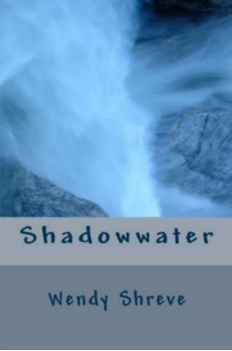CapeWomenOnline - Where Cape Women Shine
Your local venue for the women of Cape Cod to share their ideas, experiences and resources while inspiring each other in their life's journey
Inspire . Encourage . Network . Share
How Writing Saved My Sanity
by Wendy Shreve

In ancient Greece, I would speculate, playwriting must have been therapeutic, as well as a form of political protest. Aristophanes's comic plays served as thinly disguised caricatures of politicians, giving the dramatist an outlet for his dissatisfaction. Centuries later, Jonathan Swift's novel, Gulliver's Travels, satirically attacked European governments' status quo and corruption.
The play and novel also provided mediums for Aristophanes's and Swift's inner voices via less controversial, less potentially dangerous vehicles - drama and fiction - than public commentary. History has proven their choices to be wise as the playwright and the satirist continue to inspire readers, and their creations haven't become lost in the back shelves of libraries.
It's not a secret that addressing societal issues through dramatic means, especially in modern times with multimedia, has often moved viewers to stop and think; ruminate about the characters or actions they watch or how the stories reflect their own lives.
On television or in film, nevertheless, the screenwriter's motivation (including adaptations) is secondary or even unnecessary to the audience. Once fictional stories become visual, writers' personal connection to the work often is lost.
Moreover, in modern novels via hardcovers, paperbacks or e-books, the author's biographical background is left to intellectual pundits to deconstruct and analyze.
That said, readers please bear with me as I discuss my inspiration for becoming a novelist.
Politics and swaying an audience were not my outward or inward motivations, those would come later. No, I had a deeply personal reason - to save my sanity. I naturally had no idea at the time that was my impetus.
My first unconscious step toward lucidity had been coming to and living on Cape Cod. But I didn't see this until a few years later.
The second stage meant finding a creative outlet for my mangled emotions. I had written stories in the past but never made a serious push toward publishing. Journal writing had become forced, and I had waded in the vastness of on-line writing with a published short story along with some copy writing. Still, I couldn't foresee my life as a writer.
The final phase came from conquering the depths, like free diving fathoms and fathoms down until you reach a quiet, surreal solitude. I had to push myself to go places I believed I couldn't reach.
Debris blocked my exploration. Small-minded people who wanted to see me drown; suffocating financial and personal setbacks which choked my ability to breathe - which included a bombardment of medical challenges that felt like diving through schools of fish that would never disperse - all challenged my reasoning and faith.
I survived because the sea and all the natural wonders of Cape Cod reached into my soul and compelled me to write what I saw, what I felt. All that I had suppressed resurfaced. I had other help, friends and professionals, but beginning my story gave me a reason to move forward.
Writing Shadowwater two years ago, and its upcoming sequel Shadowwater: Dark Sea last summer, compelled me to exorcise past demons, mourn lost parents, and re-focus. I found the embers that would re-ignite and flame my love for life.
Many fiction writers will confess they base their characters on other people and/or on themselves. "Catharsis," however, is a word less discussed by novelists - unless clearly autobiographical - or for the minority who will admit that they have teetered on the abyss.
Poets, more often than not spill their souls, like Sylvia Plath who lost her battle, or Maya Angelou who won hers. Dramatists, Eugene O'Neill or Tennessee Williams, who didn't hesitate to live their lives through their characters, exemplify emotional therapy that unfortunately did not relieve their burdens.
But many storytellers - more often paranormal, science fiction and romance novelists - retreat into themselves. Who needs to know their personal challenges or inner struggles when an author's characters can do that for them? Whether through action, thoughts or relationships the novelist need not reveal his or her own skeletons.
Returning to my journey, as I worked two jobs and tried to find that elusive brass ring on the Cape, a.k.a, affordable housing, I discovered I had to express myself to save myself, to escape the transient, haphazard jobs that didn't provide the daily structure I believed I craved and find a semblance of control.
What I could depend on were my characters. I could control every aspect of their lives. Only then could I reach outwards, go beyond myself and find surprising rewards.
My voice has expanded to Tweeting, blogging, writing op-ed pieces, and composing poetry. I want to share with the world, through whatever medium I have available, viewpoints or thoughts, which I hope would encourage readers to stop and think.
Aristophanes, Jonathan Swift or Maya Angelou, I wouldn't presume to be, but I do share their need to be heard through words. For creating awakens the spirit. Writing heals the soul.

Available at amazon.com
Wendy Shreve, a native New Yorker, grew up in the wilds of the Lower Hudson Valley, climbing trees, connecting with nature. With New York City at her doorstep, she found a launching pad to new horizons.
Whether teaching ESL in Singapore during the Persian Gulf War, taking a school group across ravines in the jungles of Belize, going solo in Bali, or drinking a toast to Picasso with a taxi driver in Provence, Wendy has never settled for the ordinary.
She received her BA at Smith College and MA at University of Montana. Along with teaching ESL at schools and universities in Europe, Asia, and the United States, her professional experience has included working as a freelance consultant, publicist and copy writer.
Cape Cod has inspired her to write the short story, Lamentations, published by Hamilton Stone for their Quarterly Review, and her novel, SHADOWWATER. For more information visit www.shadowwater.net
Follow Wendy's blog at:
www.shadowwaterwriter.blogspot.com
Follow her on TWITTER @CapeWindy
Read Wendy's poetry at www.poetreecreations.org


